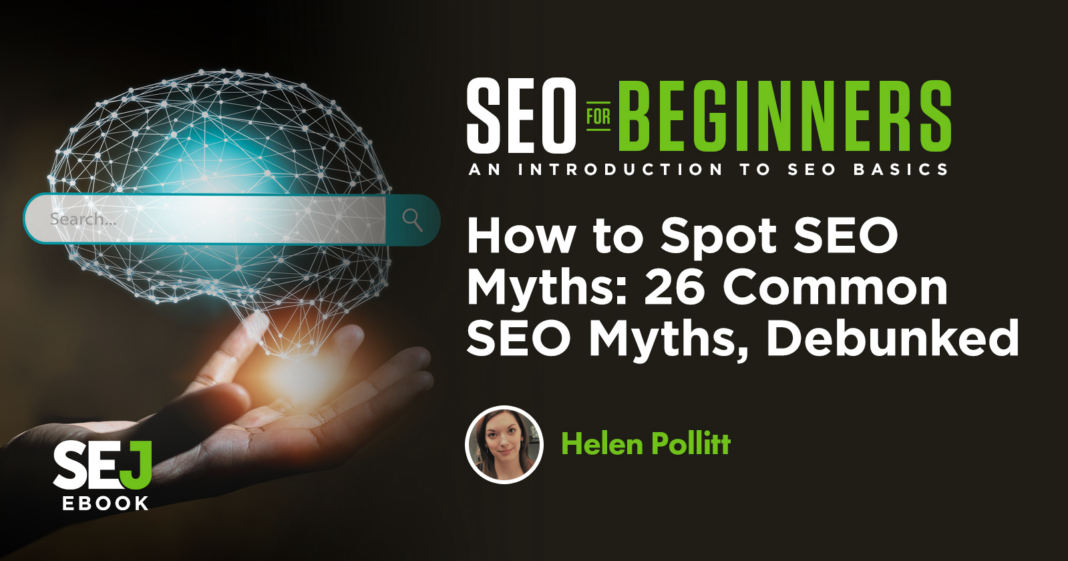How To Spot SEO Myths: 26 Common SEO Myths, Debunked
Introduction
Search Engine Optimization (SEO) is essential for any website looking to increase its visibility and rank higher on search engine results pages (SERPs). However, with the ever-changing landscape of SEO, there are many myths and misconceptions that can lead website owners astray. In this article, we will debunk 26 common SEO myths and provide you with the correct information to help you navigate the world of SEO successfully.
1. Myth: Keyword stuffing is an effective SEO strategy
Keyword stuffing, the practice of overloading a webpage with keywords in an attempt to manipulate search engine rankings, is a common misconception. In reality, keyword stuffing can harm your SEO efforts and lead to penalization by search engines.
2. Myth: The more backlinks, the better
While backlinks are an important ranking factor for SEO, quality over quantity is key. It’s better to have a few high-quality backlinks from reputable websites than numerous low-quality backlinks.
3. Myth: SEO is a one-time task
SEO is an ongoing process that requires constant monitoring, updates, and adjustments to stay ahead of the competition and algorithm changes.
4. Myth: Meta tags have no impact on SEO
Meta tags, including meta titles and descriptions, play a crucial role in SEO by helping search engines understand the content of a webpage. Optimizing meta tags can improve click-through rates and rankings.
5. Myth: Submitting your site to search engines is necessary
Search engines can crawl and index websites on their own, so manual submission is unnecessary. However, submitting a sitemap can help search engines discover new content faster.
6. Myth: Social media has no impact on SEO
While social signals are not a direct ranking factor, social media can help increase brand visibility, drive traffic, and improve user engagement, which indirectly benefits SEO.
7. Myth: More pages equal better rankings
Quality over quantity is essential when creating content for your website. Focus on creating valuable and engaging content that resonates with your target audience, rather than creating multiple low-quality pages.
8. Myth: SEO is all about ranking #1
While ranking #1 on SERPs is the ultimate goal, it’s important to focus on providing valuable content, user experience, and building authority in your niche, rather than obsessing over rankings.
9. Myth: SEO is only about keywords
While keywords are important for SEO, other factors such as user experience, mobile-friendliness, website speed, and backlinks also play a significant role in ranking well on search engines.
10. Myth: SEO results are immediate
SEO is a long-term strategy that takes time to see significant results. Patience, consistency, and continuous optimization are key to success in SEO.
11. Myth: Paid search helps organic rankings
There is no direct correlation between paid search campaigns (such as Google Ads) and organic search rankings. While paid search can drive traffic, it does not impact organic rankings.
12. Myth: Guest blogging is dead
Guest blogging can still be a valuable strategy for building backlinks and increasing brand awareness when done ethically and with high-quality content. Avoid spammy guest posting practices.
13. Myth: Exact match domains rank higher
Exact match domains (EMDs) used to have an advantage in the past, but search engines have cracked down on this practice. Focus on creating a strong brand and providing high-quality content, rather than relying on exact match domains.
14. Myth: HTTPS has no impact on SEO
Having a secure website with HTTPS encryption is a ranking factor for Google. A secure website instills trust in users and can improve search engine rankings.
15. Myth: SEO is dead
SEO is constantly evolving, but it is far from dead. In fact, SEO is more important than ever for businesses looking to establish a strong online presence and reach their target audience.
16. Myth: Content is not important for SEO
Content is king in the world of SEO. High-quality, relevant, and engaging content is essential for attracting visitors, building authority, and earning backlinks.
17. Myth: SEO is all about gaming the system
SEO is about optimizing your website to provide value to users and improve their experience. Trying to manipulate search engine algorithms is not a sustainable or effective long-term strategy.
18. Myth: More ads mean higher rankings
Excessive ads can harm the user experience and lead to a higher bounce rate, which can negatively impact SEO. Balance the placement and frequency of ads to provide a good user experience.
19. Myth: Google prefers new content over old content
While fresh content can signal to search engines that your website is active and relevant, older content can still rank well if it is valuable, evergreen, and well-optimized.
20. Myth: SEO is a one-size-fits-all approach
Every website is unique, and SEO strategies should be tailored to fit the specific goals, target audience, and industry of each website. There is no one-size-fits-all approach to SEO.
21. Myth: SEO is expensive
While investing in SEO services and tools can be costly, there are many free resources and DIY strategies that can help improve your website’s SEO without breaking the bank.
22. Myth: SEO is only for large businesses
Small businesses and startups can benefit greatly from SEO by increasing their online visibility, attracting more customers, and competing with larger companies on search engine results pages.
23. Myth: SEO is a set-it-and-forget-it strategy
SEO requires continuous monitoring, optimization, and adaptation to changes in search engine algorithms and user behavior. Set-it-and-forget-it strategies will not yield long-term success in SEO.
24. Myth: SEO is all about tricking search engines
SEO is about optimizing your website to provide valuable, relevant, and user-friendly content that meets the needs of your target audience. Trying to trick search engines will eventually backfire.
25. Myth: SEO is separate from content marketing
SEO and content marketing go hand in hand. Creating high-quality content that is optimized for search engines can improve your website’s visibility, attract more traffic, and engage your audience.
26. Myth: SEO is a one-person job
While one person can handle basic SEO tasks, a comprehensive SEO strategy often requires a team of professionals with expertise in various areas, including keyword research, content creation, technical SEO, and link building.
Conclusion
By debunking these 26 common SEO myths, you can now navigate the world of SEO more confidently and effectively. Remember that SEO is an ever-changing landscape, so staying informed, adapting to algorithm updates, and focusing on providing value to users are key to success in SEO.
FAQs
1. How long does it take to see results from SEO efforts?
SEO is a long-term strategy, and it can take several months to see significant results. Patience, consistency, and ongoing optimization are crucial for success in SEO.
2. Are backlinks still important for SEO?
Yes, backlinks are still an important ranking factor for SEO. However, it’s important to focus on quality over quantity when building backlinks to your website.
3. Is social media important for SEO?
While social signals are not a direct ranking factor, social media can indirectly impact SEO by increasing brand visibility, driving traffic, and improving user engagement.
Overall, by understanding and dispelling these common SEO myths, you can make informed decisions and optimize your website for better search engine rankings and visibility.




